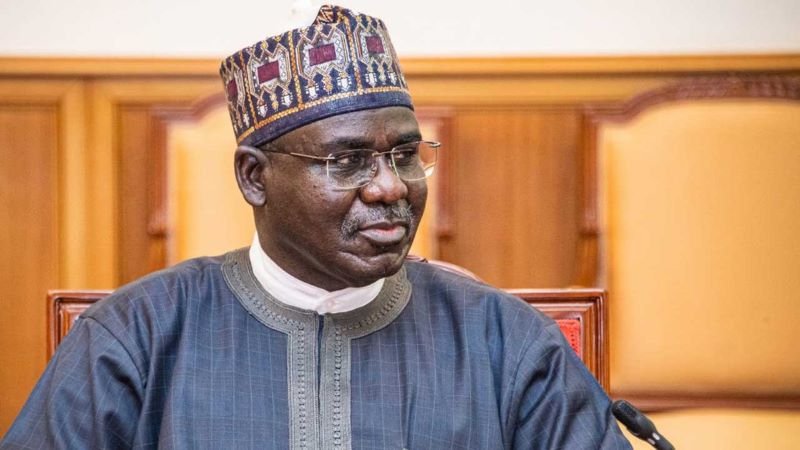FORMER Chief of Army Staff (COAS), Lt. Gen. Tukur Yusuf Buratai (rtd.), has proposed a temporary lockdown of Nigeria’s land borders as part of measures to decisively deal with terrorism and cross-border crimes in the country.
Buratai, who served as Nigeria’s army chief between 2015 and 2021 under former President Muhammadu Buhari, made the suggestion on Friday during an interview on Channels Television’s Sunrise Daily monitored by News Point Nigeria.
The retired general argued that just as the federal government shut down the country’s borders during the outbreak of COVID-19 to prevent further spread, similar drastic steps could be considered in the fight against insurgents, bandits, and other terror groups.
“We can lock down our borders the way it was done during COVID-19.
“Allowing insurgency to linger is dangerous for the country, and it requires bold and deliberate investments to defeat the problem,” Buratai said.
Buratai emphasised the need for community resilience through deeper collaboration among political leaders, traditional institutions, and religious stakeholders, stressing that security agencies cannot succeed alone without grassroots involvement.
He recalled that during his tenure, he had warned that insurgency might last longer than expected, hence the importance of adopting long-term strategies rather than quick fixes.
“Community resilience is critical. Political, traditional, and religious leaders must come together to address the root causes. I had warned earlier that insurgency would be protracted, which is why we must have long-term plans,” he added.
On the growing calls for the establishment of state police to tackle insecurity at the local level, Buratai said while the initiative has merits, it carries risks if left unchecked.
He cautioned that state policing could be abused by politicians to harass or intimidate opponents unless mechanisms are put in place to insulate it from political interference.
“The idea of state police has come to stay, but the major issue is political interference. Once that is addressed, it can become a very effective tool,” he noted.
Buratai also insisted that the Nigerian military should be regarded as a vital partner in resolving insecurity, rather than being perceived as part of the problem.
According to him, properly resourced and supported security forces, combined with strong community collaboration, would go a long way in curbing insurgency and restoring peace.







